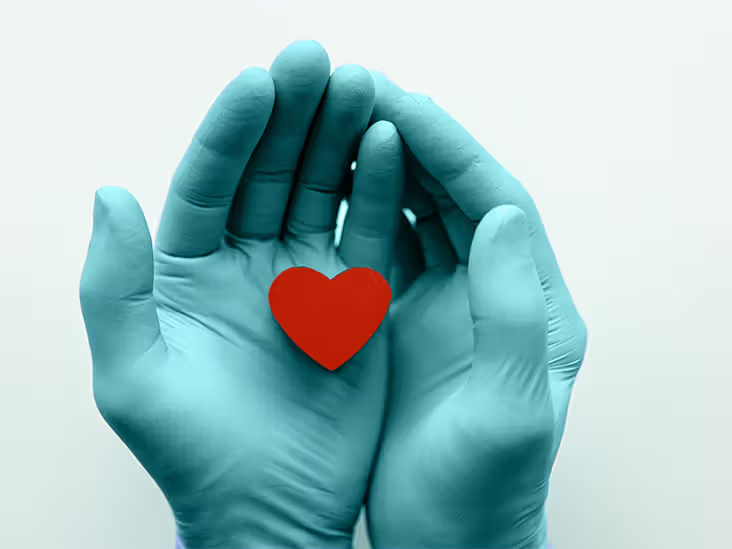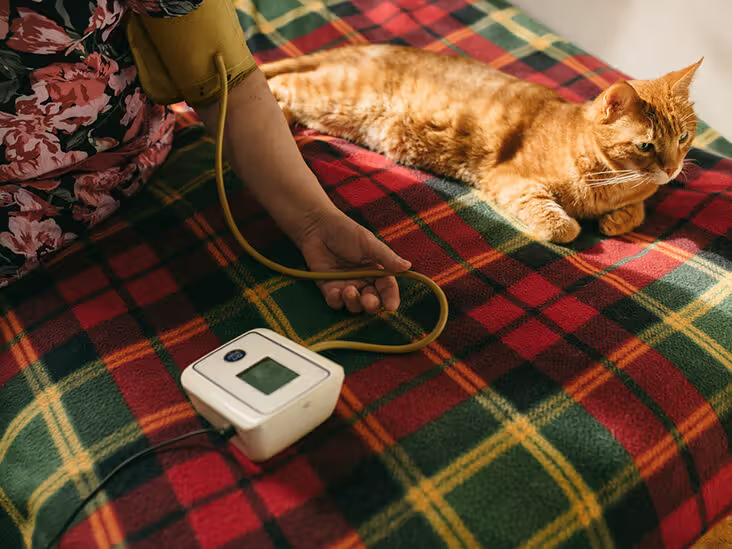Heart health is one of the most important aspects of overall well-being—and who better to learn from than a cardiologist himself? Dr. Haider, a respected cardiologist in New York and social media advocate known as @yourheartdoc, doesn’t just give advice—he lives it. In fact, a cardiologist supports his own health by following essential daily habits.
Between managing a demanding medical career and his family life, Dr. Haider follows eight practical habits that keep his heart strong and healthy. His approach is realistic, sustainable, and focused on consistency over perfection—a philosophy that anyone can adopt.
Here’s how Dr. Haider supports his heart health, and how you can do the same.
1. Identify Your Priorities
For Dr. Haider, the top three priorities in life are health, family, and purpose. Time is his most limited resource, and he has learned to plan intentionally so these priorities never get lost in the shuffle.
👉 Tips for you:
- Treat your health like an important appointment, not an afterthought.
- Reflect on whether your time aligns with your values.
- Start with one or two small goals, then build gradually.
- Remember: taking care of your health also means caring for your loved ones.
📌 For example, making time for family dinners while choosing heart-healthy meals like those from a Mediterranean-style diet can benefit both relationships and long-term health.
2. Consistency Over Perfection
Dr. Haider emphasizes that you don’t need to give up everything you love—whether it’s dessert, pasta, or a juicy steak. Instead, the goal is balance and consistency, not rigid perfection.
👉 Tips for you:
- Build sustainable habits you can stick with most of the time.
- Allow indulgences without guilt, but balance them with healthy choices.
- Focus on weekly balance instead of daily restriction.
💡 Remember: A few mindful indulgences won’t harm you if your baseline is consistent, heart-healthy habits.
3. Follow a Balanced Diet
Nutrition is the cornerstone of cardiovascular health. Dr. Haider practices intermittent fasting on most days and eats a Mediterranean-inspired diet, which emphasizes:
- Vegetables, fruits, whole grains, and legumes
- Healthy fats like olive oil and nuts
- Lean proteins such as fish and chicken
- Limited processed foods and added sugars
⚠️ While intermittent fasting has been linked to improved heart health in some studies, Mayo Clinic highlights that more research is needed to fully understand long-term effects.
4. Move Your Body Regularly
Movement doesn’t have to mean a gym membership. Dr. Haider mixes strength training, cycling, and yoga—not only for heart health but also to manage his chronic back pain.
Even 30 minutes of exercise per week can reduce cardiovascular risk, according to WebMD.
👉 Tips for you:
- Choose activities you enjoy—walking, yoga, cycling, or dancing.
- Break workouts into short sessions if you’re busy.
- Use daily opportunities for movement, like taking the stairs.
5. Manage Stress Through Boundaries
Long-term stress is harmful for the heart. Dr. Haider manages his stress by setting boundaries between work and personal life.
👉 Tips for you:
- End your workday with a ritual—like a walk or meditation.
- Avoid checking emails late at night.
- Learn to say no to tasks that can wait.
Stress management is just as important as diet and exercise when it comes to protecting your heart.
6. Prioritize Sleep
Sleep is no longer optional for Dr. Haider—it’s essential. He aims for 7 hours of quality sleep per night because poor sleep is linked to negative heart outcomes.
👉 Tips for you:
- Stick to a consistent sleep schedule.
- Limit caffeine and screens before bed.
- Keep your room cool and dark.
7. Build Small, Consistent Habits
Instead of fancy gadgets or miracle supplements, Dr. Haider focuses on basics like:
- Tracking daily steps (goal: 7,000–10,000)
- Monitoring blood pressure and cholesterol
- Staying consistent with small, daily habits
💡 He believes that long-term consistency beats trendy quick fixes.
8. Be Proactive About Health
Finally, Dr. Haider stresses the importance of being proactive—not waiting for a health scare to take action. Adjust your lifestyle as your body and circumstances change.
👉 Tips for you:
- Regularly evaluate your habits.
- Teach your children by modeling healthy behaviors.
- Take small, proactive steps today for long-term health.
📌 For additional heart health tips, check American Heart Association guidelines.
The Role of Anti-Cancer Drugs in Modern Treatment
Cancer treatment has evolved significantly, and one of the key pillars of therapy remains anti-cancer drugs. These medications are designed to target cancer cells, stop their growth, and improve survival rates. Today, patients have access to multiple forms of treatment, often used in combination, for maximum effectiveness.
Types of Anti-Cancer Drugs
- Chemotherapy – Traditional chemotherapy works by destroying rapidly dividing cancer cells. It is still widely used, often in combination with other therapies.
- Hormone Therapy – Effective for cancers like breast and prostate, hormone therapy blocks hormones that fuel tumor growth.
- Targeted Therapy – Designed to attack specific molecular targets on cancer cells, making it more precise than standard chemotherapy.
- Immunotherapy – A breakthrough in cancer care, immunotherapy strengthens the immune system to fight cancer naturally.
- Supportive Treatments – These include drugs that reduce side effects and improve quality of life during therapy.
If you are exploring affordable medications, you can browse our Anti-Cancer Medicines Collection at The Medicine Villa.
Benefits and Risks
Anti-cancer drugs can significantly shrink tumors, prevent recurrence, and extend life expectancy. However, they may also cause side effects such as fatigue, nausea, hair loss, and low immunity. At The Medicine Villa, we ensure access to trusted medicines with 50% OFF and Free USA Shipping to support patients throughout their journey.
Alternatives and Supportive Care
Beyond drugs, many patients explore supportive care like supplements, nutrition, and lifestyle modifications. For example, natural options such as Ivermectin in USA are being researched for potential anti-cancer benefits.
Frequently Asked Questions
Q: Are anti-cancer drugs safe?
Yes, when prescribed by doctors, they undergo rigorous testing and monitoring.
Q: Can I combine alternative medicine with chemotherapy?
Always consult your oncologist before combining treatments.
Q: How long will I need to take these drugs?
The duration depends on the type and stage of cancer.
Final Thoughts
Modern cancer treatment combines traditional and innovative approaches, giving patients more hope than ever. If you or a loved one is navigating treatment, staying informed about the role of anti-cancer drugs can help in making the right choices.
✅ Takeaway
Dr. Haider’s approach proves that heart health isn’t about chasing perfection—it’s about balance, consistency, and sustainable habits. From prioritizing sleep to moving daily and managing stress, small choices add up over time.
💡 The key lesson: progress is more powerful than perfection. A little effort, done daily, can transform your heart health.























